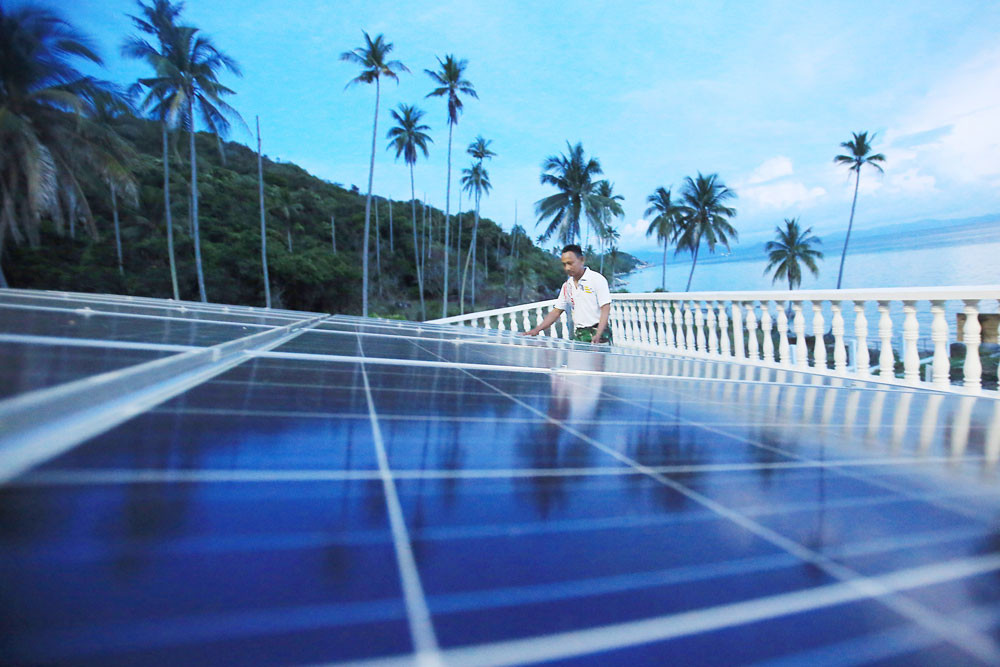Popular Reads
Top Results
Can't find what you're looking for?
View all search resultsPopular Reads
Top Results
Can't find what you're looking for?
View all search resultsSolar power for houses
And as solar power generation is more about technological innovation than fuel to generate power, prices should continue to fall, as they have for cell phones.
Change text size
Gift Premium Articles
to Anyone
T
he public campaign launched by Energy and Mineral Resources Minister Ignasius Jonan at the National Monument (Monas) in Jakarta on Sunday to promote rooftop photovoltaic (PV) solar panels is part of the government’s multifaceted push to develop clean energy.
The campaign is timely as it comes after the Energy and Mineral Resources Ministry enacted a regulation late last year on licensing for the installation of rooftop PV solar panel systems and feed-in fees for exporting excess power into the grid of state electricity firm PLN.
The regulation stipulates that the installation of a rooftop PV solar panel system requires prior verification and approval from PLN’s local distribution unit, a process that should be completed within 15 days.
The electricity bills of PLN customers with rooftop PV systems will be calculated monthly, based on the kilowatt per hour (kWh) import value minus the kWh export value. The value of electricity exported from rooftop PV solar panels to the PLN grid will be calculated at 65 percent of the applicable PLN fee.
The experiences of countries that have developed rooftop PV solar panel systems show that one of the most complex parts of a feed-in fee system is setting the payment level, as it should provide cost recovery for producers without overcompensating them through windfall profits. In order to reflect the actual production costs and the policy objectives more accurately, the rates should be differentiated by various factors.
The high upfront cost of solar energy has long dampened the prospects of solar power in sunny Indonesia. The installation of rooftop PV solar panels now costs Rp 18 million (US$1,200) per 1 kilowatt peak (kWp). Watt peak represents the maximum electric power that can be supplied by one PV solar panel in standard temperatures and sunny conditions.
The high upfront cost of a rooftop PV solar panel system seems to have been the main cause of the slow growth of customers in Jakarta to only about 600 houses at present. According to a study by the Institute for Essential Service Reform, the potential of rooftop solar power generation in Java alone is more than 350 gigawatts peak (gWp).
And as solar power generation is more about technological innovation than fuel to generate power, prices should continue to fall, as they have for cell phones.
But a well-structured tax incentive package should be developed to encourage more small independent power producers to harness solar power for electricity generation in cooperation with households installed with rooftop PV solar panels. Most importantly, the government should expedite the licensing process for PV solar panel installations.
The biggest complaint raised by solar power investors is the manufacturing regulation that requires a minimum 60 percent local content to be used in PV solar panels, while the domestic industry is currently only able to supply 40 percent.
We think the government should first stimulate the growth of the PV solar panel market by allowing imports until rooftop PV solar panel customers increase to such a level as to create economies of scale for mass production.










